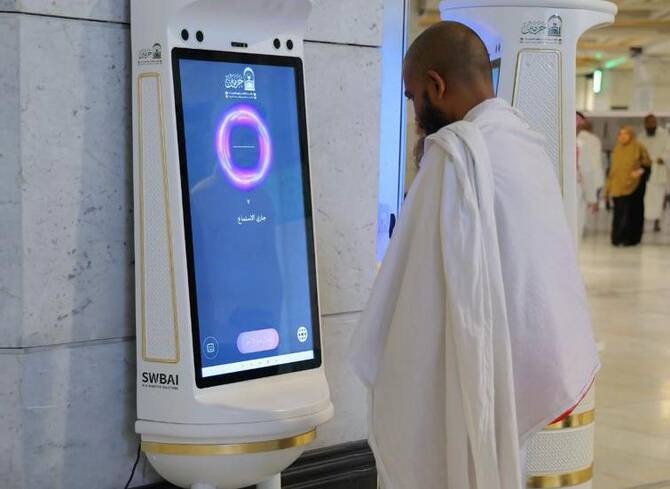MAKKAH, SAUDI ARABIA – In a significant move blending tradition with modern innovation, the Presidency of Religious Affairs at the Grand Mosque and the Prophet’s Mosque has introduced smart worship aids aimed at transforming the religious experience for millions of Muslim pilgrims visiting the Holy Mosque in Makkah.
Through its Agency for Advocacy and Guidance Affairs, the Presidency has strategically deployed handheld digital devices and interactive QR codes across several locations within the sacred mosque. These tools are designed to offer real-time, step-by-step religious guidance in various global languages, thereby breaking down language barriers and ensuring that worshippers perform their religious duties in line with authentic Prophetic teachings.
Pilgrims and visitors can simply scan the QR codes using their smartphones to access comprehensive religious instructions. These include video and textual content on the correct performance of Hajj and Umrah rites, guidelines on daily prayers, and explanatory notes rooted in Islamic tradition. The materials are vetted by scholars and translated into multiple languages including English, Urdu, Bahasa Indonesia, French, and others, reflecting the diverse composition of pilgrims who journey from across the world to the heart of Islam.
Officials from the Presidency noted that this digital initiative is not only a response to the linguistic and educational needs of visitors, but also a reflection of Saudi Arabia’s broader vision to enhance the spiritual atmosphere of the Two Holy Mosques through technology. They affirmed that the project is part of ongoing efforts to ensure that sacred rituals are preserved and practiced in accordance with the Sunnah (traditions) of Prophet Muhammad (peace be upon him).
The innovation also aligns with Saudi Arabia’s Vision 2030 goals, which emphasize digital transformation across various sectors, including religious services. This initiative highlights the Kingdom’s commitment to utilizing technological solutions to serve pilgrims better, improve accessibility to verified Islamic knowledge, and elevate the standard of religious awareness at one of Islam’s most revered sites.
With an annual influx of over 2.5 million pilgrims during Hajj alone — and millions more throughout the year for Umrah and daily prayers — the need for inclusive, user-friendly religious resources has become paramount. The newly launched smart guidance tools address this demand, making religious observance more accessible, particularly for non-Arabic speaking visitors who often face challenges in understanding ritual processes.
The Presidency reiterated that the introduction of these smart tools represents a new era in pilgrim services, one where technology complements faith, ensuring that every step a pilgrim takes within the sacred precincts is informed, guided, and spiritually enriching.

